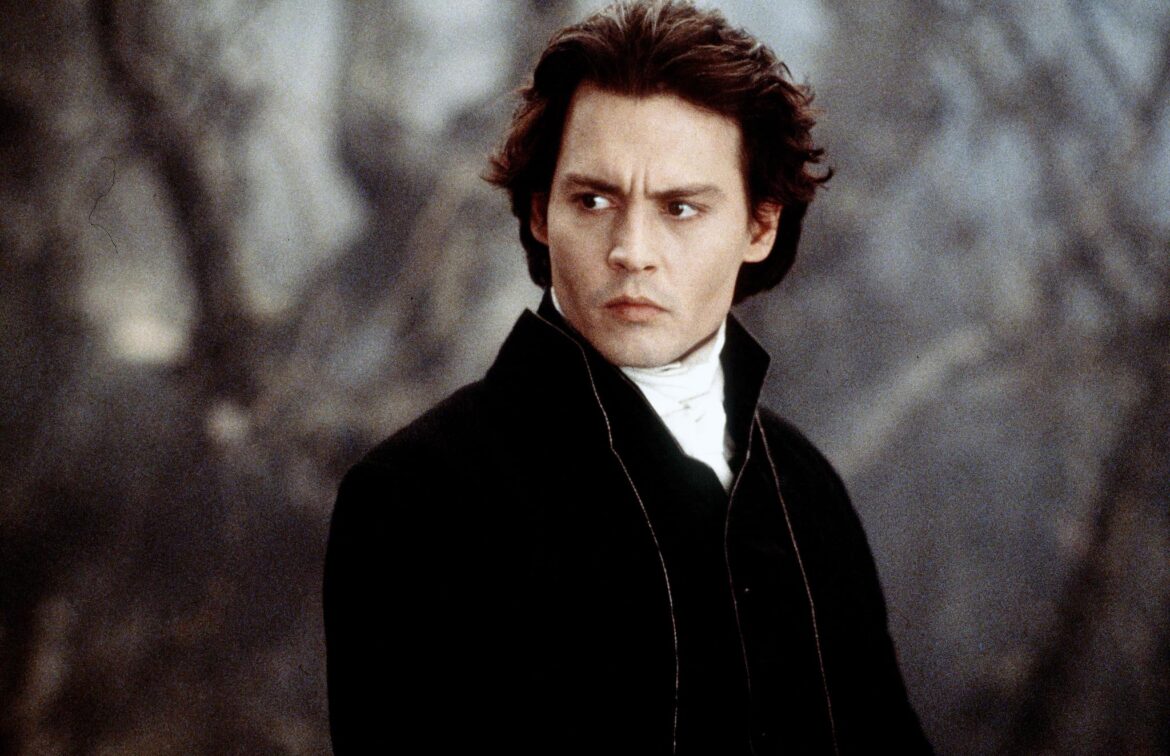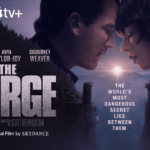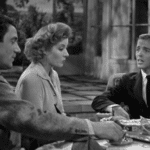This review is a part of our series “Revisiting ’99: Cinematic Gems and Cult Classics”, where we look back 25 years ago at the films of 1999.
Synopsis of Tim Burton’s 1999 “Sleepy Hollow”
If you’re unfamiliar with the original short story of “The Legend of Sleepy Hollow”, written by Washington Irving in 1820, its the story of a young teacher named Ichabod Crane who is driven out of a small American settlement in the late 1790s by a mysterious headless horsemen. Crane is at the time attempting to woo Katrina Van Tassel, while a local man named Brom is competing for her affection as well. Brom is the one who in fact relays the story of the headless horsemen to Crane before this story begins to mirror reality as Crane is haunted by the figure. Though there have been plenty of straight telling’s of this story, especially at this time in his career it’d be impossible to see Tim Burton simply delivering a to the letter adaptation. Fortunately Burton did no such thing, and instead he delivered a story that’s more detective film than classic fable, as Ichabod Crane, now portrayed by Johnny Depp as a young detective ahead of his time in his New York community, is sent to the small village of Sleepy Hollow to prove both himself and his “modern” methods effective by solving the mystery behind Sleepy Hollow’s mysterious and gruesome murders. From there Burton takes this tale into a new direction, blending both the criminal procedural and the supernatural, which largely was applauded by audiences and critics alike in 1999,. while inspiring the TV series of its namesake released in 2013.
Thoughts on Tim Burton’s 1999 “Sleepy Hollow”
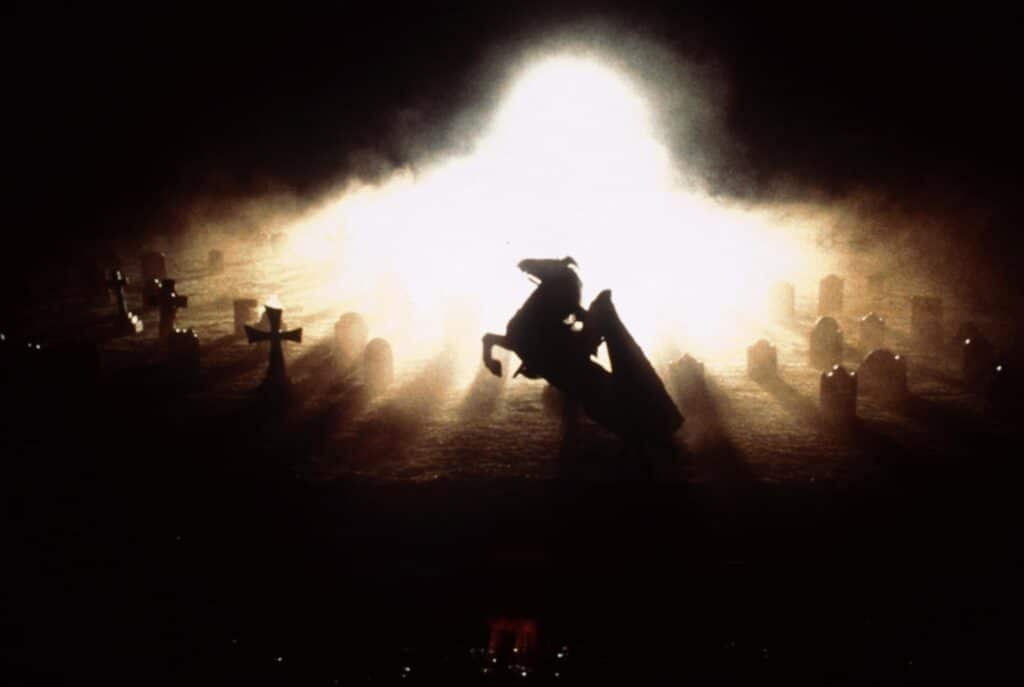
The Headless Horseman in Tim Burton’s “Sleepy Hollow”
Starting this series focused on the films of 1999 with Tim Burton in many ways is an unlikely move for me personally, as I’ve never been a fan of Burton’s works as I’ve found his eccentric, stylized films too dull, too weird, or often both. My highest rated Burton film sits at around a 2.5/5 to give you a sense of the bar for me. However, of the films of 1999 I’d yet to see in many ways I had the most connection with this film, and perhaps the most curiosity as I remember the trailer at the time in many ways haunting my young mind as it was cut – to me – to suggest a horror film of epic proportions. If I’d known Burton better at that time; however, I’d have realized that though the movie is still quite gruesome, in ways that even the age of a film hasn’t softened, that largely Burton prefers to relay his films with a quirky style and sense of humor that, though rarely ever for me, provides a lightness to even this dark material.
The film begins and ends on Johnny Depp’s shoulders, a place nowadays more shaky than most to rest a film; however, back then in his prime a fairly sure bet. Indeed Depp’s portrayal is rather strong throughout the film, with his only inconsistencies seemingly largely at the direction of the script as Depp has to begin as Irving’s timid Crane yet quickly develop into a character with more fortitude, lest there be no reason for the movie at all otherwise Irving’s Crane would have high tailed it 1/3 of the way through the picture. Indeed I found the first third to be the weakest part of the film in general, as we’re introduced to characters played by such legends as Christopher Lee who, aside from a cameo and perhaps a nod to his horror days, is given little to do except set Crane off on his “hero’s journey.”
Once Depp’s Crane arrives in Sleepy Hollow we largely abandon the New York world, and quickly we seem to abandon Crane’s mission given to him by Lee – at least the part to prove his methods – as he becomes too swept up by the mystery itself for anyone himself included to care about proving “modern forensic methods.” In fact one of the early punchlines, that quickly demonstrates this movie’s tonal switch largely to an eccentric, perhaps even farcical detective film (and not simply a plodding, gory one), is when Crane says not to move the body, and when asked why he simply says “Because.”
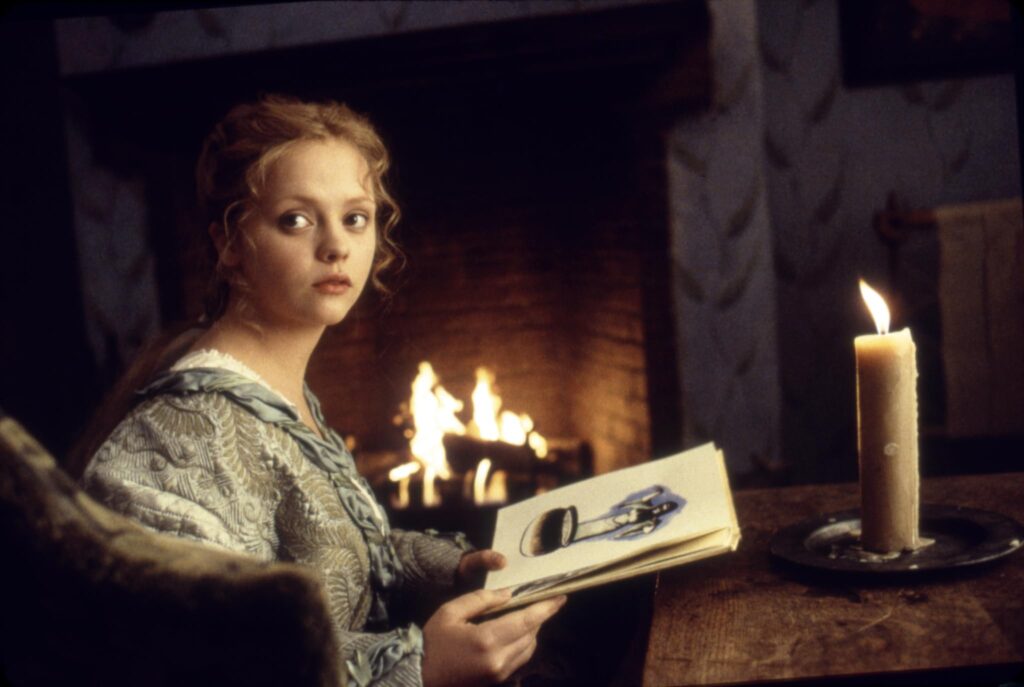
Christina Ricci in Tim Burton’s “Sleepy Hollow”
Returning to the resemblances to Irving’s original, we’re introduced in Crane’s first set of scenes in town very quickly to Katrina Anne Van Tassel portrayed by Christina Ricci. Though she’s setup as the love interest, perhaps in a rare moment of knowingness by a 1990s director we’re thankfully told more than shown of their mutual affections, which is appreciative as Depp, nearly twice Ricci’s age, looks incredibly out of place with her. While Ricci certainly delivered on what she had in this film, she was given comparatively little to work with as Depp commanded the majority of the screen time and the lines.
Though at this point I’ll stop with any further synopsis, it’s also the perfect point to pivot into some of the critiques of the film starting with the mystery at large. Perhaps thanks to the sheer number of murders, or the casting of certain characters, but its pretty clear early on what’s causing the gruesome deaths, and for me this was what I looked forward to solving the most. Therefore when it was made quite apparent – at least for this viewer – the last third become incredibly tedious. At the onset of the film I remember being pleasantly surprised to see the film was under 2 hours, but alas by the end I thought it had felt more like three.
I’m also one who could never appreciate Burton’s constant tone transitions in this film, which especially with his use of flashbacks felt quite amateurish (yet perhaps expected, as they compared heavily with those employed in his Willy Wonka film.) I understood why it was awkward to transition away from Irving’s story to Burton’s own, and to be fair I never loved Irving’s version, so I was happy for said transition, but once the solving of the mystery begins in earnest, and the supernatural is implored throughout the film, I couldn’t understand if Burton indeed knew what tone he wanted for this film himself. Clearly the script and Burton expected some laughter, for which I was apparently not the target audience though it was clear where intended jokes and visual gags where implored. However, then Burton would transition from a joke to a horrendous scene which came seemingly out of the first third of the film which I felt he had largely abandoned otherwise. Overall this tonal confusion was the greatest letdown of the film, and why as it progressed I felt more unmoored to the film than the horseman’s head to his body.
Conclusion
All this is to say this may be where I split continually from Burton and where fans of his live, in that in between space of weird, quirky, horrific, yet supposedly funny? Certainly looking back 25 years on there was too little here to demonstrate to me the positive favor this film received at the time, for despite Depp’s strong performance I think the film lost the plot. Though I applaud Burton for attempting to tell a new story, back in a time when Burton compared to now appeared to have a few new ideas left, I’m afraid it still feels like the beginning of the end of an inventive mind’s career instead of a career highlight.
